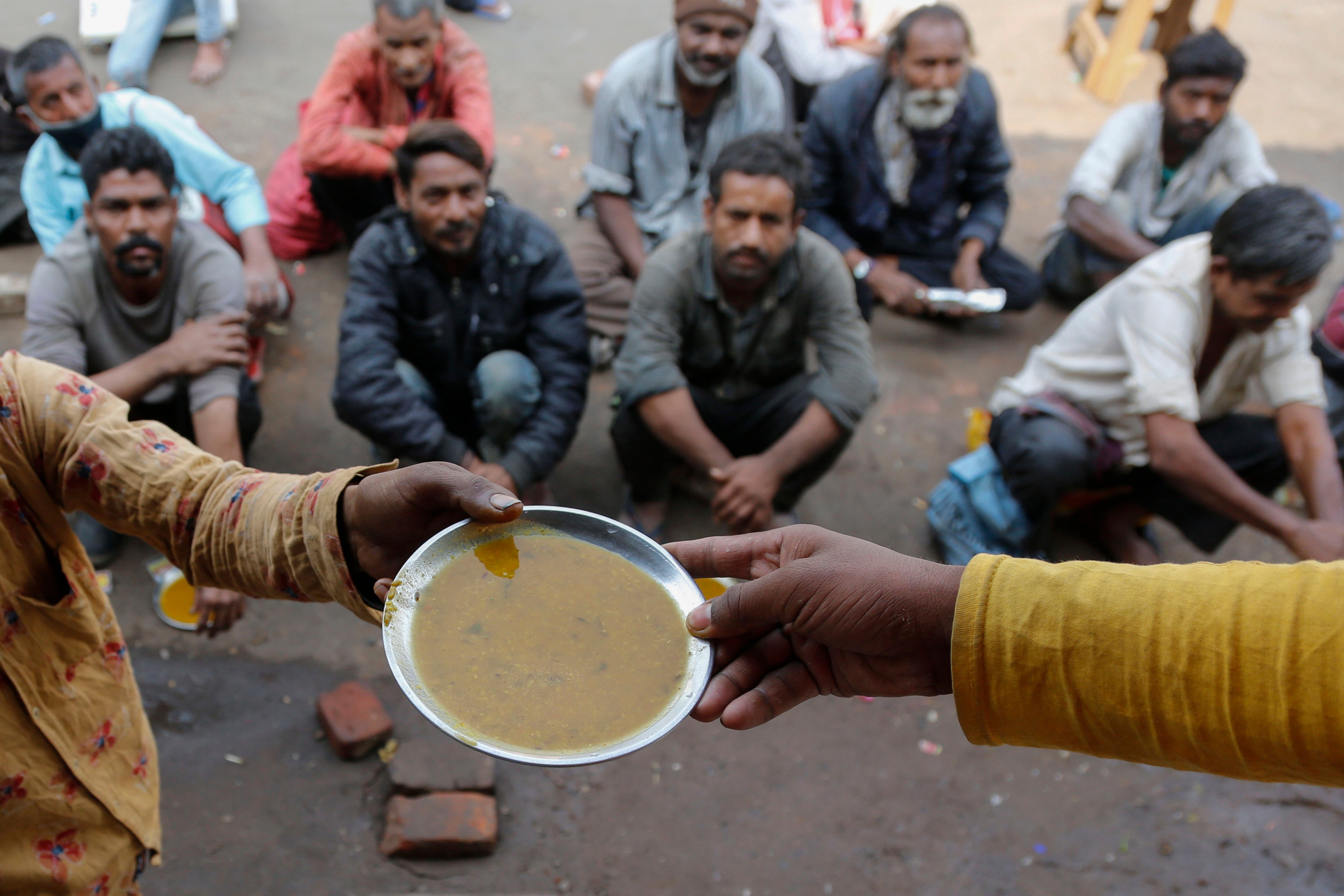FAO: Virus hits Asian food security, as millions go hungry
A United Nations report says the prolonged pandemic and surging prices are undermining food security for millions of people in Asia

Your support helps us to tell the story
From reproductive rights to climate change to Big Tech, The Independent is on the ground when the story is developing. Whether it's investigating the financials of Elon Musk's pro-Trump PAC or producing our latest documentary, 'The A Word', which shines a light on the American women fighting for reproductive rights, we know how important it is to parse out the facts from the messaging.
At such a critical moment in US history, we need reporters on the ground. Your donation allows us to keep sending journalists to speak to both sides of the story.
The Independent is trusted by Americans across the entire political spectrum. And unlike many other quality news outlets, we choose not to lock Americans out of our reporting and analysis with paywalls. We believe quality journalism should be available to everyone, paid for by those who can afford it.
Your support makes all the difference.The prolonged pandemic and surging prices are undermining food security for millions of people in Asia, with 1.8 billion lacking access to healthy diets, a report by the UN’s Food and Agricultural Organization said Wednesday.
The report says access to food worsened in 2020 and deteriorated further this year as governments struggled to keep outbreaks at bay by restricting travel and other activities.
With progress toward alleviating hunger stalling, the FAO is urging comprehensive measures to improve food security, part of a push toward what experts call a “food systems" approach.
David Dawe, senior economist at the FAO's regional office for Asia and the Pacific, said the organization's food price index rose by nearly a third in the past year. The price of vegetable oils, which are critical for health, soared 74%, he said.
Rising global commodity prices affect the costs for consumers, in “another blow to the poor, who spend a large percentage of their income on food and are struggling to recover from the impacts of COVID-19." Dawe said.
“Food producers have also faced more recent challenges after the initial impact of the pandemic including rising fuel and fertilizer prices,” he said.
A transformation of systems to improve food security needs to revolve around the needs of the many small-scale farmers in the region and other vulnerable groups such as indigenous peoples, women and children, the FAO report says.
It notes that nearly 16% of people in South Asia are undernourished and that for the region as a whole undernourishment is at its highest level in a decade, at 8.7%.
Access to adequate food is worst in North Korea with more than 40% of its people undernourished. But hunger is an urgent problem also in Afghanistan Papua New Guinea and East Timor.
Conditions across the region are still better than they were in 2000, but progress in recent years has slowed and in some cases reversed. In 10 countries in the region, more than 30% of children under 5 years old suffer from stunting, or low height for age — a common measure for how well fed they are. In another eight countries, between 20%-30% do.
Such deprivation has long-lasting consequences, as children suffer from weaker health and fail to achieve their full potential.
Millions among those children suffer from wasting, a potentially more dangerous condition due to inadequate food or prolonged illness. In 2020, more than 31 million children in the Asia-Pacific were affected by wasting, and that number could rise to 40 million by the end of 2022 if current trends continue.
The FAO and others working on hunger are urging that efforts focus on broader issues than just raising the amount of food that is produced — a crucial step but one that does not ensure families can actually afford healthy diets.
The challenge is in devising policies to improve food systems to cope with pandemics, natural disasters, poverty, political instability and other challenges that get in the way of improved access to enough food.